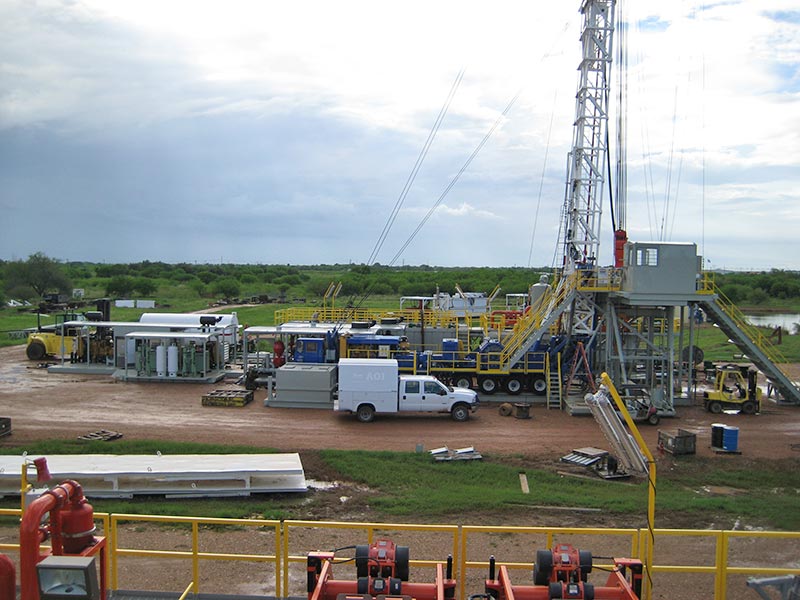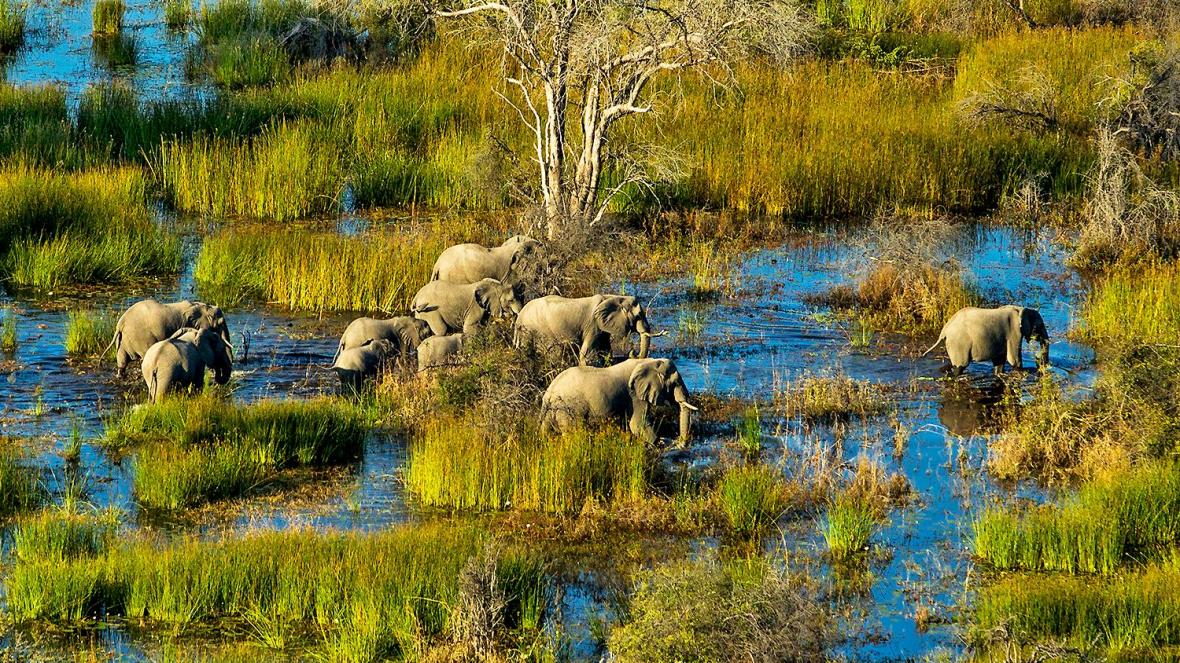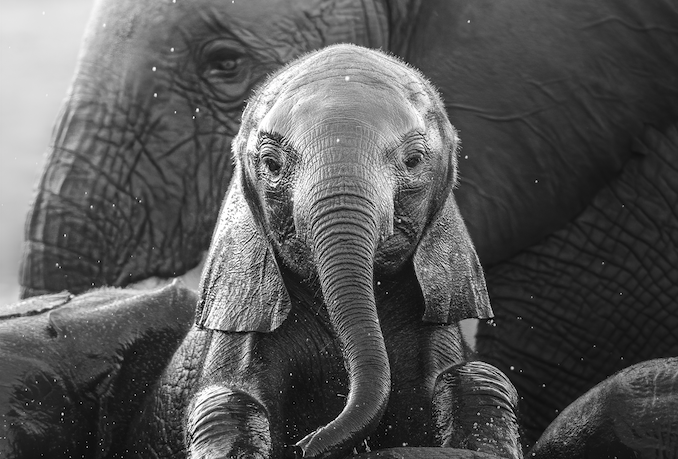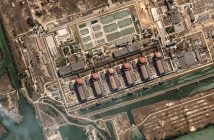- ReconAfrica’s hunt for fossil fuels in the Kavango Basin threatens Africa’s largest remaining population of savanna elephants with extinction.
- The Canadian company is currently drilling test wells in a region representing a key migratory corridor for an estimated 18,000 elephants; these elephants form a significant portion of a full third of Africa’s last elephants- the 130,000 who call Botswana home.
The extraction enterprise follows official reports of hundreds of elephants dying under mysterious circumstance in the Okavango Delta between 2019 and 2020; the suspected causal factor leading to the mass die-off was an excessive bloom of cyanobacteria in waterholes; the phenomena is aggravated by Climate Change.

ReconAfrica’s drilling rig executing Its drilling for oil program In Okavango Delta. Image credit: ReconAfrica
With 50 million years of evolution buttressing a complex matriarchal social structure, elephants demonstrate heightened intelligence, intense emotions, are self-aware and mourn their dead. Known to be sensitive to drilling-related seismic activity, elephants alter migratory patterns in response . If ReconAfrica’s activities persist within the Delta, the elephants of the Okavango, already refugees of poaching and habitat loss, simply have “no place left to go”.
Related news: Paradise is closing down, the ghastly spectre of oil drilling and fracking in the fragile Okavango Delta
At present, ReconAfrica is installing “test wells” over an area larger than Belgium; one that straddles Namibia and Botswana. The region is a critical migratory corridor for an estimated 18,000 African elephants. These elephants form a significant portion of a full third of Africa’s last elephants, specifically, the 130,000 who call Botswana home.
ReconAfrica’s extraction efforts in the Okavango region are likely to result in a catastrophic disruption of Africa’s last and largest remaining population of elephants. The consequence is tantamount to the genocide of earth’s last great walkers, to the “genocide” of sentient creatures, millions of years old.
“What we see of oil exploration and distribution is the tip of the iceberg. The associated infrastructure and subsequent rendering of the landscape easily accessible does equal damage and leads to bigger risks or losses. The landscape loses its intrinsic value. But that is hard to quantify, unless you can grasp the concept of wilderness.” says Craig Spencer, founder of Transfrontier Africa and the Black Mambas and Retired Head Warden of Balule Nature Reserve and Warden of the Olifants West Region in South Africa.

The Okavango Region is home to Africa’s largest remaining savanna elephant population. Image credit: Getty Images
The Red List status for savannah elephants was recently revised to ‘endangered’ by the International Union for Conservation of Nature. Yet savannah elephants are not the only species threatened by ReconAfrica’s plans for the Delta. The IUCN reports that ReconAfrica’s operating license covers the habitat of four critically endangered species, seven endangered species and twenty species listed as vulnerable. Among the species affected are the African wild dog, the grey crowned crane, the white-backed vulture, the black rhino, the Temminck’s pangolin and the martial eagle].
Ecotourism is a primary source of income for Namibia; it accounts for a whopping 14.1% of Namibia’s GDP. The Okavango Delta itself generates millions each year in sustainable revenue and is a prime tourist destination. These revenues sustain the lives and livelihoods of Namibia’s people. The decision to drill within the Delta has the potential to yield chronic ecological, economic and reputational losses for Namibia. Compounding the problem, roads built to service the extraction project will increase access to the region and render the area more vulnerable to poaching. The outcome of increased poaching will have a devastating impact on the already dwindling rhino population of the Delta.
Transparency and accountability are recurrent casualties in ReconAfrica’s hunt for oil in the Okavango. Local communities in Namibia report that they have not been informed of operations and were not consulted prior to the production and conclusion of the Environmental Impact Assessment initiated by ReconAfrica.
Rural and indigenous communities are on the frontlines of Climate Change; they are the first victims of unpredictable weather, of prolonged droughts, of depleted water sources and of chronic pollution. Indigneous populations are significant sources of knowledge, information and adaptation in the context of vulnerable biodiversity and complex landscapes . The international community must demand a revision of ReconAfrica’s EIA with full stakeholder participation.
” ….It would be a travesty for Botswana, in particular, to get lured away from its proven and very successful developmental pathway, to shiny objects and false promises along the developmental pathway,” said the late globally recognised IPCC scientist Bob Scholes in a recent interview.
“At a time when wildlife populations have plummeted by two-thirds in just 50 years, and Africa’s elephants are critically endangered, we must do all we can to protect and cherish earth’s largest terrestrial mammal, a creature symbolic of Africa’s wild heritage and one who wordlessly captures the human imagination.” – Rosemary Alles, President & Co-Founder of Global March for Elephants and Rhinos (GMFER).
Source: The Global March for Elephants and Rhinos











